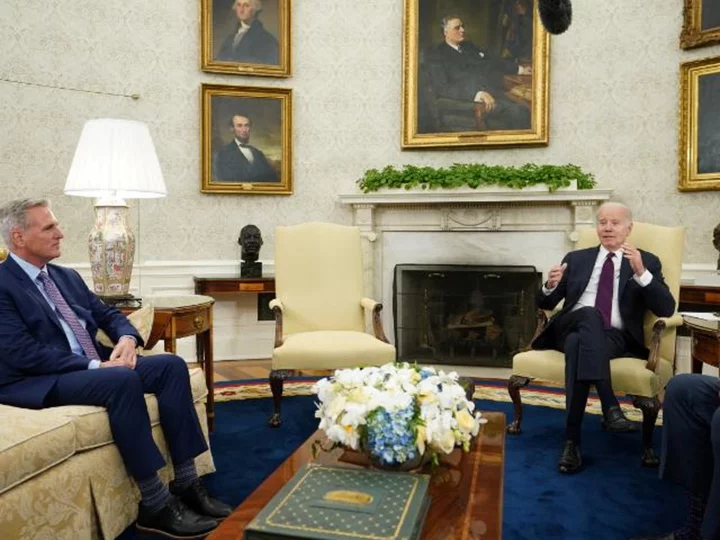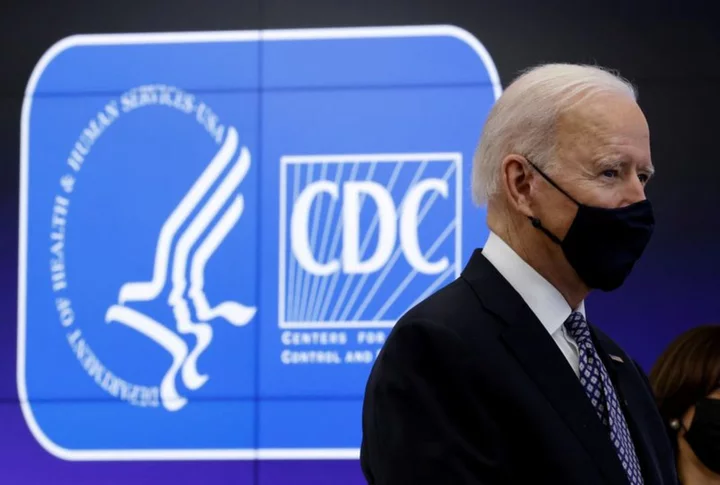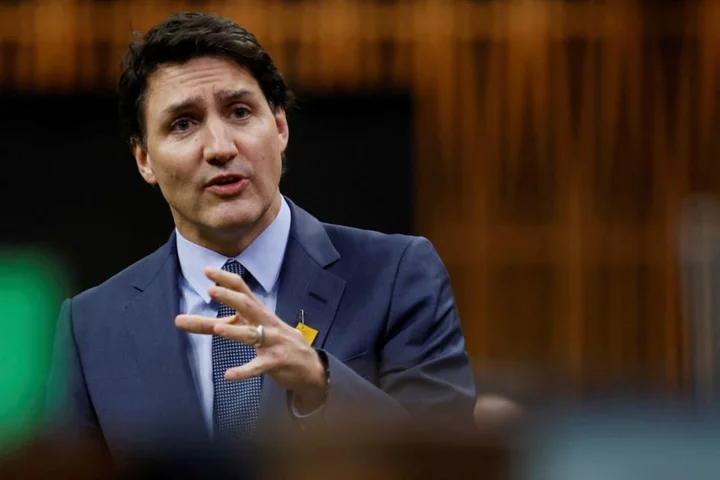In a lengthy meeting at the White House Tuesday, leaders struggled to break any new ground on debt ceiling negotiations with a source familiar telling CNN that leaders repeated over and over again the same positions privately that have become a common refrain in public.
Literally, no new ground was breached, the source told CNN.
It's a reflection of the entrenched positions that have paralyzed negotiations for nearly 100 days now and a dangerous sign for what could be ahead. After making no progress, which House Speaker Kevin McCarthy and others acknowledged publicly on Tuesday night, the speaker ended his meeting with the president on Tuesday afternoon by asking him how did he want to proceed?
The implication: Was there room to keep talking? President Joe Biden told McCarthy that staff should meet over the subsequent days followed by another meeting Friday.
Leaders left the meeting echoing that plan.
Two men with an untested relationship
One of the more telling signs following the meeting Tuesday was how personal both the jabs from the president and speaker seemed to be at one another in separate press availabilities.
Both men are experienced lawmakers who have keen understandings of the power of relationships in deal making. McCarthy found a way in his young speakership to turn some of his one-time foes into powerful allies that helped cement him a major victory on his own debt ceiling package just two weeks ago. But on Tuesday, Biden accused the speaker of -- at times-- being "a little over the top," a subtle but pointed critique of McCarthy's negotiating style. Both before and after the meeting, McCarthy brought up how he was misled by Biden for 97 days between when they first met and when Biden told him on several occasions they'd get together. They never did.
During the meeting at one point, McCarthy pushed back on what has become a common Democratic attack that the GOP bill cuts funding for veterans. Biden pushed him to explain the cuts. McCarthy said point blank that was a lie. McCarthy later confirmed in his news conference though he made clear he wasn't calling Biden specifically a liar.
What could a deal look like?
A source familiar with these discussions told CNN that the contours of a potential deal aren't that difficult to imagine, but at this point no one is actually negotiating anything.
Potentially, leaders could come up with a two-track plan that could raise the debt ceiling and set future budget caps to reduce spending over time. Messaging wise, that could give everyone an opportunity to claim victory. Still, the source said no one is ready to go there yet.
The question is whether staff might be able to begin heading in that direction in the days ahead. The White House and Democrats continue to say they want a clean debt ceiling deal. Republicans want to see spending cuts attached to that increase. With just a handful of days of members in session, no one is blinking yet.
One complicating factor
In February when McCarthy and Biden first met and before House Republicans crafted and passed their own bill to rein in spending and raise the debt ceiling, the terms of this negotiation might have just been focused on a caps deal accompanied by a debt ceiling hike. McCarthy had more flexibility. But now, GOP sources tell CNN that House Republicans are far more invested in some of the other provisions that were part of their bill including:
Work requirements, or requiring more low-income Americans to work in order to receive government benefits, particularly food stamps and Medicaid.Permitting reform for energy projects.Returning unspent Covid-19 response funds to federal coffers.Repealing some of the green energy tax credits that were part of the Inflation Reduction Act.
House Republicans are well aware that they won't get all of that and most are giving the Speaker wide latitude to negotiate with the White House, but the buy in members have on some of those other provisions is real and could be a complicating factor if a substantive negotiation ever gets underway.
The timeline
In Congress, things can move as quickly (or as slowly) as negotiators want them to. But it does take time to draft and actually pass bills on the floor. June 1 is just weeks away and if congressional leaders are going to cut a deal with the White House, they don't have much time to waste.
McCarthy told reporters Tuesday it was his belief that a framework would need to be agreed upon by next week in order to ensure a deadline wouldn't be missed. That isn't hard and fast and again, Congress can move rapidly when they want to (and when there is widespread agreement). But the runway for progress here isn't that long. There is time for one bad meeting, but there isn't much time for more than that.









